Feng shui and sleep — expert reveals where not to put your bed
Learn how to feng shui your bedroom, including where to position your bed for better sleep, according to an expert
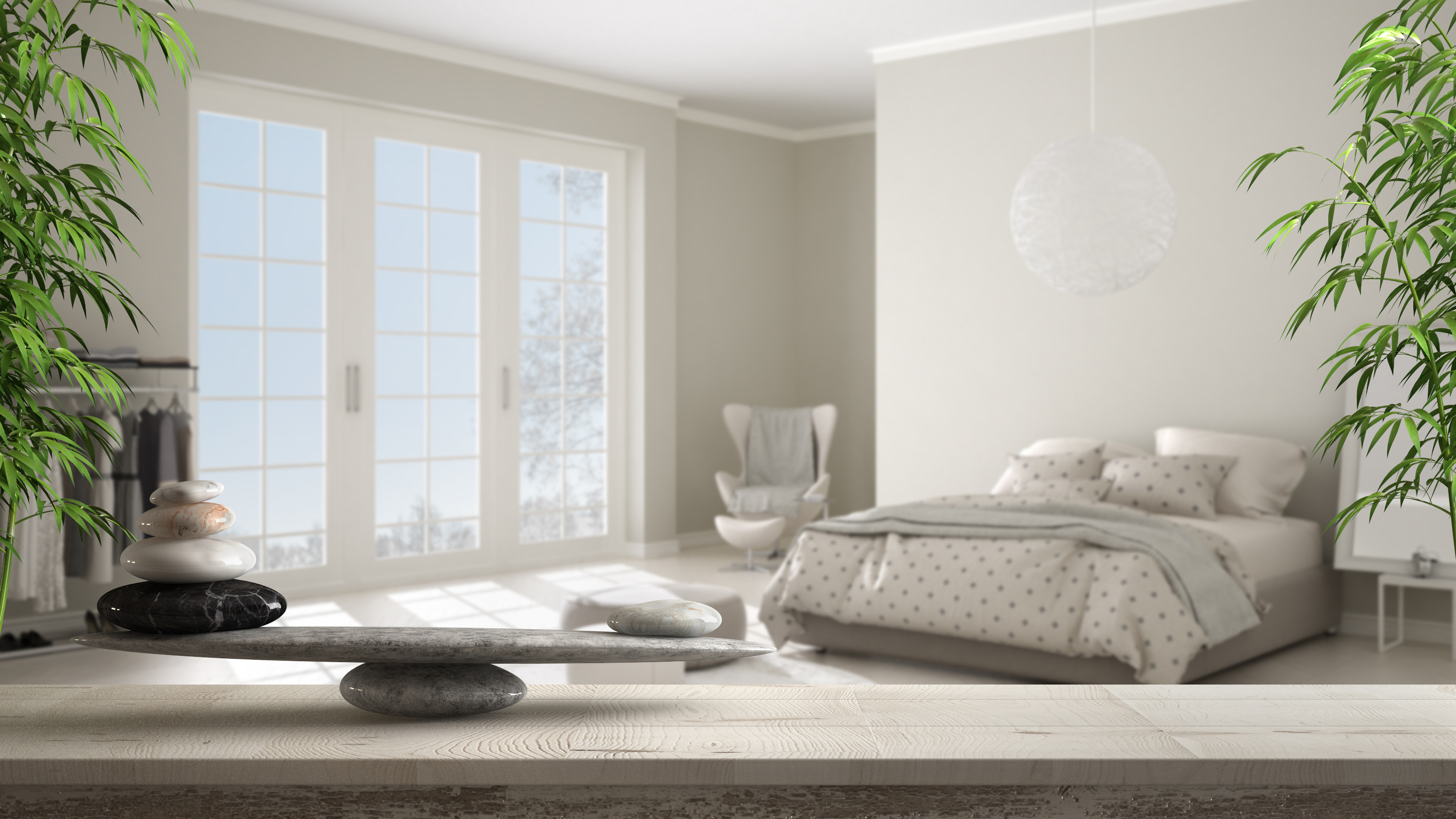
For relaxing sleep your bedroom should be clear, uncluttered and clean. But according to feng shui – the practice of balancing energy within the natural environment – how you arrange your bedroom, and in particular, where you place your bed, can also make a big difference.
We recently spoke to feng shui expert Sarah McAllister of The Feng Shui Agency to discover the best way to set up your bedroom and discover why you should never sleep with your bed directly beneath a window.
What is feng shui and how does it affect sleep?
Feng shui is a traditional practice that goes back thousands of years, but modern feng shui takes elements of this to suit how we live today. This includes organizing furniture in a certain way, as well as using colors, fabrics, and ornaments to create a more harmonious atmosphere in our homes.
“Feng shui originated in China and is primarily concerned with health,” says Sarah. “Feng means ‘wind’ and shui means ‘water’ and that refers to natural forces with water being life-giving to attract energy and wind representing movement.
“Feng shui is important because when you’re sleeping you need a ‘quiet’ environment, and not just from an auditory perspective, but quiet in terms of the energy in the room you need to feel settled. So feng shui is about balancing the natural forces via the built environment.”

“Energy dynamics are important in the bedroom, so you need to balance nighttime restfulness, stillness and darkness with the daytime energy of daylight, movement and activity.”
Here she shares her top tips to help you sleep well, including the best place to position your bed, and what mattress frame and headboard is best for sleep.
Get instant access to breaking news, the hottest reviews, great deals and helpful tips.
What is the ideal feng shui bedroom setup?
If you are looking to organize your bedroom in the best way for sleep, then Sarah’s advice is this: “Ideally, say if you have a bedroom with one door, then you want the bed to be diagonally opposite the door, but centred against the wall. This places the bed in what is called the ‘power position’ of the room with a good view of the door.”
You want the bed to be diagonally opposite the door, but centred against the wall. This places the bed in what is called the ‘power position’
Sarah McAllister, feng shui master
The main thing to remember when positioning your bed in the bedroom, is to “have a solid wall behind you”, says Sarah. You can also have bedside tables either side and at the same height as the bed to bring more stability to your sleep environment.
When it comes to proper sleep, getting the best mattress for you is essential. If you live in rented accommodation, Sarah still advises buying a new mattress. This ensures you have a bed that is not only hygienic but hasn’t been moulded by someone else’s body shape or 'energy'.
Where should you never position your bed?
“Try not to place a bed beneath a window, especially if the window is right behind your head.” While this cannot always be avoided, the good news is there are things you can do. Sarah says, “You can get away with it if there is a long horizontal window further up and there is a solid wall behind you.”
If you are very limited as to where you can position your bed, Sarah recommends choosing “a solid headboard or as high a headboard as you can, making sure it is solid and padded.
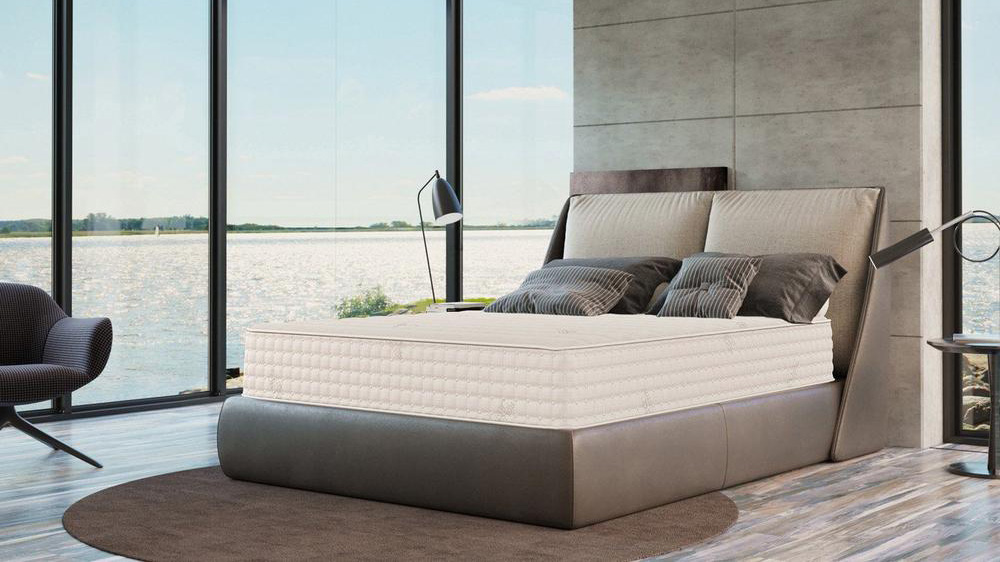
"This means avoiding a grill or slatted-style headboard with cut-outs. Ideally, the headboard will stand on the floor [as part of the bedframe] rather than be attached to the wall or screw into the bed, as they can wobble and be unstable.”
What about the mattress and bedframe?
When it comes to the actual mattress, Sarah prefers ones that include natural and organic mattress materials such as wool or organic latex. This also applies to your sheets, duvet and pillows. She says, “Try to choose more breathable and organic bed linen made from bamboo or natural cotton, rather than too many synthetic fabrics, such as polyester, which are not ideal for balanced sleep.”
You may have heard people talking about avoiding mirrors in the bedroom. But why? Sarah explains that when it comes to maintaining a quiet atmosphere, “mirrors are quite activating”, and can reflect, even at night, 'energy' around the room. If necessary, smaller mirrors are okay, but you should avoid having a mirror placed where you can see yourself in bed. If you do have a larger mirror in the room, drape fabric over it at night to create a more conducive atmosphere for sleep.
Sarah uses a memory foam mattress topper, and airs it in the sunshine for a natural way to clean it, taking advantage of the antimicrobial effects of UV rays.
She also airs her duvet this way, saying, “We produce a lot of moisture when we sleep, as we breathe out and sweat, and this gets held in our duvets and mattresses, so it’s good to air them in natural sunlight.”
As for bedframes, a sturdy wooden frame with a solid headboard offers stability. Sarah also advises keeping clutter to a minimum around and under the bed too. In traditional feng shui, the idea is for energy to flow freely.
“Ideally your bed frame will not have a storage section or drawers,” says Sarah. “Even though these are useful, in an ideal world, your bed will have nothing underneath it and should be about six inches off the floor.”
How does feng shui help with good sleep hygiene?
Good sleep hygiene – the habits and environment needed for healthy sleep – is crucial for proper rest. And feng shui has lots of practical advice that can help. Here are Sarah’s top things to consider for good sleep hygiene:
LIGHT AND AIR
“Make sure you open the curtains during the day, and close them at night. I recommend blackout curtains for total darkness as you sleep. But make sure you remember to open them during the day to let the daylight in. Total darkness helps with the production of melatonin that promotes healthy sleep.”
Another way you can let in light and better airflow is by leaving your door open, as experts say sleeping with your bedroom door open helps you fall asleep faster.
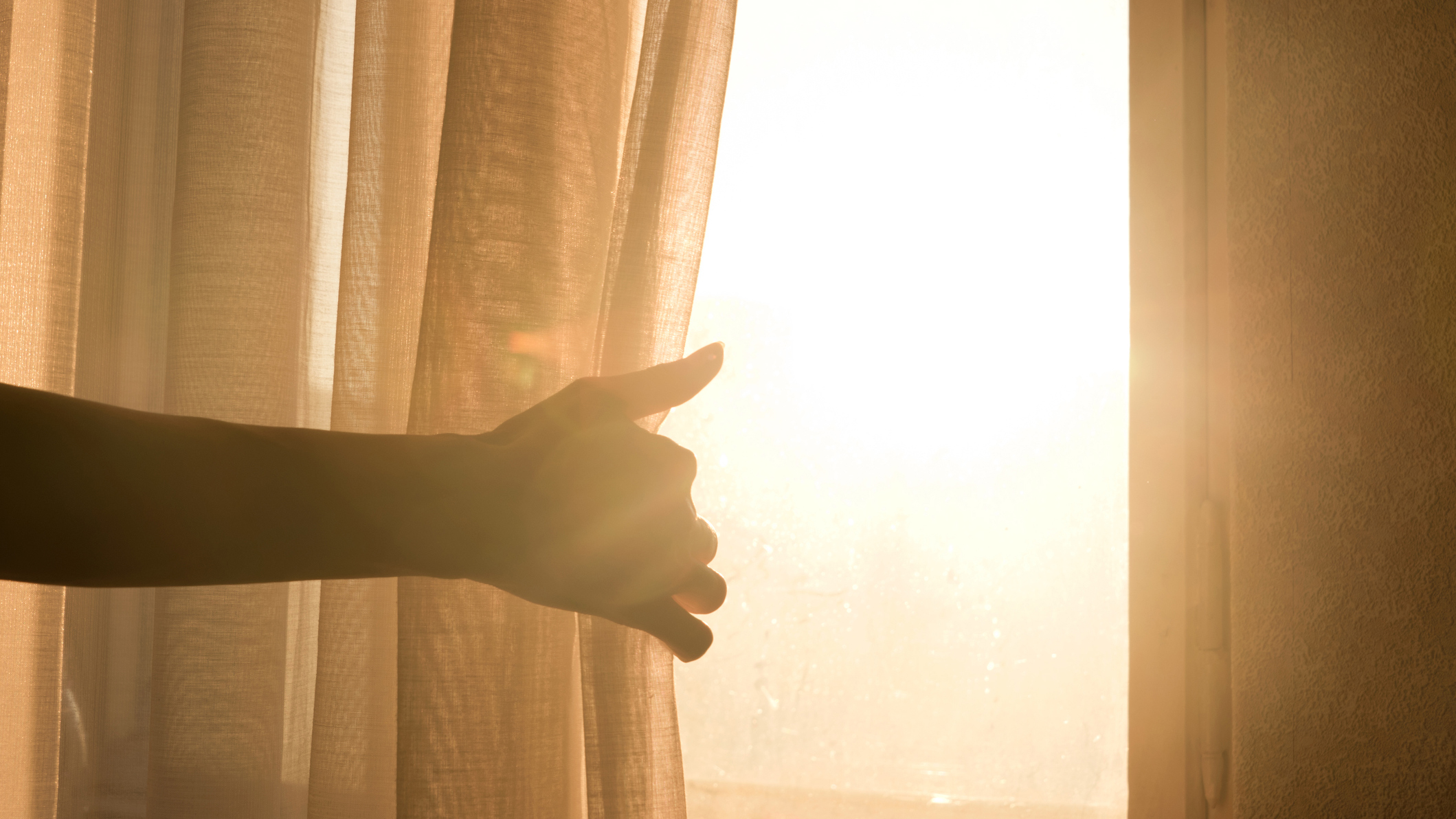
Sarah says one of the biggest mistakes people make in the bedroom is not opening the window night or day. For a healthy sleep environment, there needs to be air movement in the bedroom, and Sarah advises to open a window “even if it’s less than a centimetre” if you are worried about the cold.
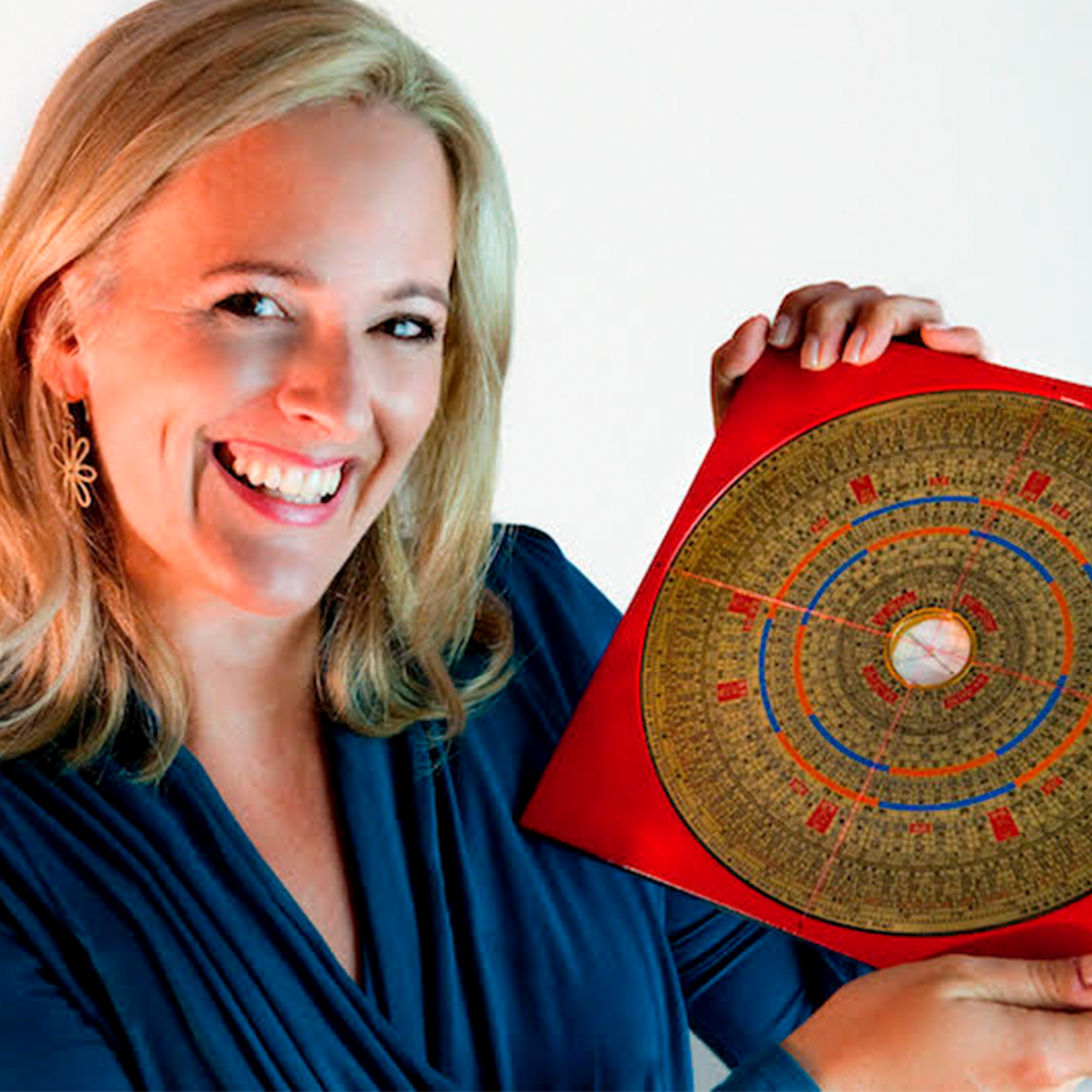
Sarah McAllister, of Feng Shui Agency, is a classically trained Feng Shui Master with 24 years’ experience helping people optimize their homes and businesses for greater health, happiness, success and harmony. She has also served on the Global Wellness Institute’s Wellness Architecture Initiative. Her book 5D Wellbeing – How to Design Your Life & Your Home to Support Your Inner Luminosity is on Amazon.
OBJECTS
Ornaments and art are fine in the bedroom, but avoid having too much, especially if they are too abstract, spiky or aggressive-looking. Sarah says the “brain subconsciously picks up on these items”, meaning a less than relaxing atmosphere.
Visual symmetry is pleasing if you want to create a relaxing bedroom. For instance, this could be a pair of matching candles on bedside tables either side of the bed, but try to avoid making things too sterile. “You want some sense of life,” says Sarah, for anybody who’s keen to avoid that ‘show-home’ look.
She also has advice if you are looking for a partner: “Try to avoid having ornaments that are single figures, and always keep them in pairs. Displaying single figures reinforces a sense of isolation, which is not something you want if you're trying to keep a positive mindset when looking for a partner.”
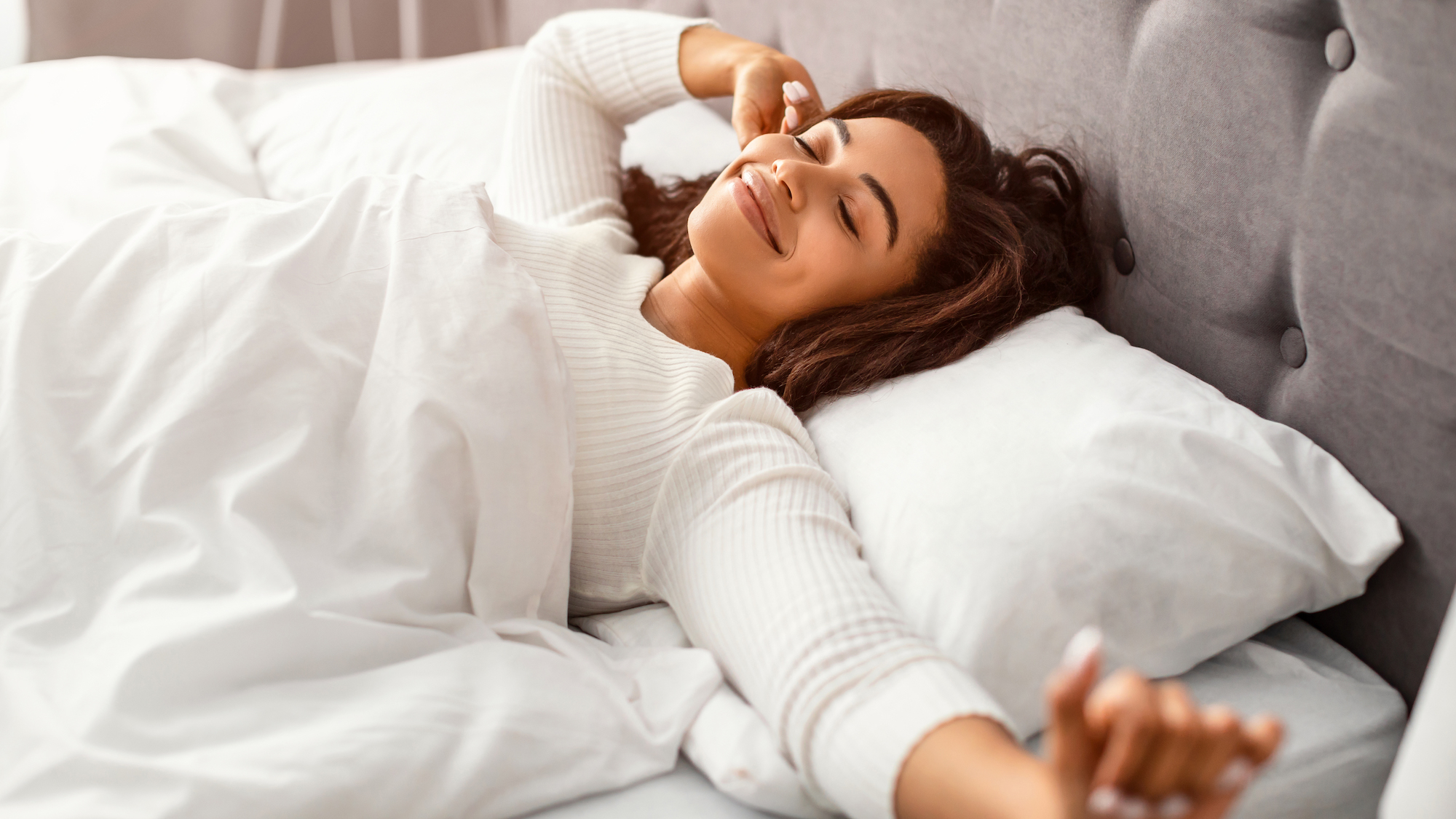
LIGHTING AND COLOR
Try to keep lighting soft and gentle, with “nothing too harsh,” says Sarah. “If it’s a larger room, you could get away with a more ornate light fitting, but nothing too spiky.” She instead recommends regular lampshades made from fabric or paper.
According to the principles of feng shui, too many dark colours in the bedroom, including walls, can make a bedroom lifeless, draining you of energy, and making you feel sluggish when you wake.
Sarah says to keep colours neutral in the bedroom – pastels and muted shades. “You don’t want bright reds, lurid pinks or strong purples, for instance, as it’s too overpowering. Although these shades are fine in the living room.”
Feng shui and other ways to sleep better
Plenty of people contact professionals like Sarah to help them set up their new or existing homes according to best feng shui practice. This not only creates a harmonious atmosphere, but it can also promote better health, with a clear uncluttered space that’s easier to maintain and create a restful environment.
If you are looking for more ways to get a great night’s sleep, it helps to invest in a good pillow, as well as enjoy a pre-bedtime routine that includes switching off screens and having a relaxing bath, before settling down to sleep in your beautifully arranged feng shui bedroom.
Next: Try these 9 Feng Shui bedroom tips to get a good night's sleep.
Grace is an experienced sleep writer and mattress reviewer who also contributes to our sister site TechRadar, among other Future plc brands. She's a big fan of organic sleep products and has recently invested in a wool mattress topper that she quite happily describes as "life-changing." (Hey, we're serious about our sleep products). When she isn't testing mattresses or writing about sleep, Grace enjoys reading and creative writing, and incorporates meditation and yoga into her wellness routine.

